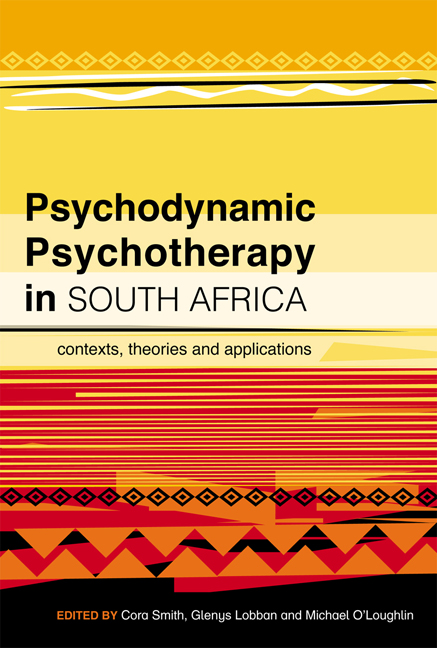Afterword Glenys Lobban and Michael O'Loughlin
Published online by Cambridge University Press: 21 April 2018
Summary
Many of the chapters in this volume address a common theme: the need for a new kind of psychoanalytic theory and practice in South Africa which is relevant to its unique problems. The authors are attempting to develop a new form of psychoanalytically oriented psychotherapy which is inflected by, appropriate for and relevant to post-colonial South Africans. They are trying to develop a new hybrid theoretical framework which interrogates the assumptions of current psychoanalytic theory and expands its scope to include non-Western collectivist notions of self and community. Taken together, the chapters are a clarion call for a radical transformation of psychoanalytic praxis, an invitation for the heretofore invisible African, non-Western third to be acknowledged and welcomed into the analytic consulting room. These chapters are part of a new wave in psychoanalytic thinking which interrogates the implicit, hidden assumptions about class, gender, race, sexual orientation, culture and Western standards which are embedded in psychoanalytic theories (see Cushman, 2012; Dimen, 2011; Layton et al., 2006; Lobban, 2011). In our opinion psychoanalysis needs an infusion of such thinking if it is to remain a viable option for people from a variety of classes and cultures.
Addressing the decline of psychoanalysis in the United States, Paul Stepansky (2009) noted in Psychoanalysis at the Margins that it is vital that the field shed its elitism and make a commitment to technical pluralism and to encouraging psychoanalysts to develop applications that demonstrate that psychoanalysis has something useful to offer to society. As Stepansky noted, psychoanalysis has often cloaked itself in elitism and snobbery and in doing so has reinforced the perception that it is only a bourgeois therapy for bourgeois problems. This is unfortunate, as psychoanalysis had a long history of social activism, particularly in its earliest days, that has continued into the present (Altman, 1995; Danto, 2005; Moskowitz, 1996; O'Loughlin, 2010, 2012; Watkins & Shulman, 2008). Particularly now, with increasing pressure from market-based and evidence-based reforms, it is essential that psychoanalysis make the case for the utility and even efficiency of psychoanalytic and psychodynamic approaches to addressing particular societal problems.
- Type
- Chapter
- Information
- Psychodynamic Psychotherapy in South Africacontexts, theories and applications, pp. 273 - 276Publisher: Wits University PressPrint publication year: 2013



